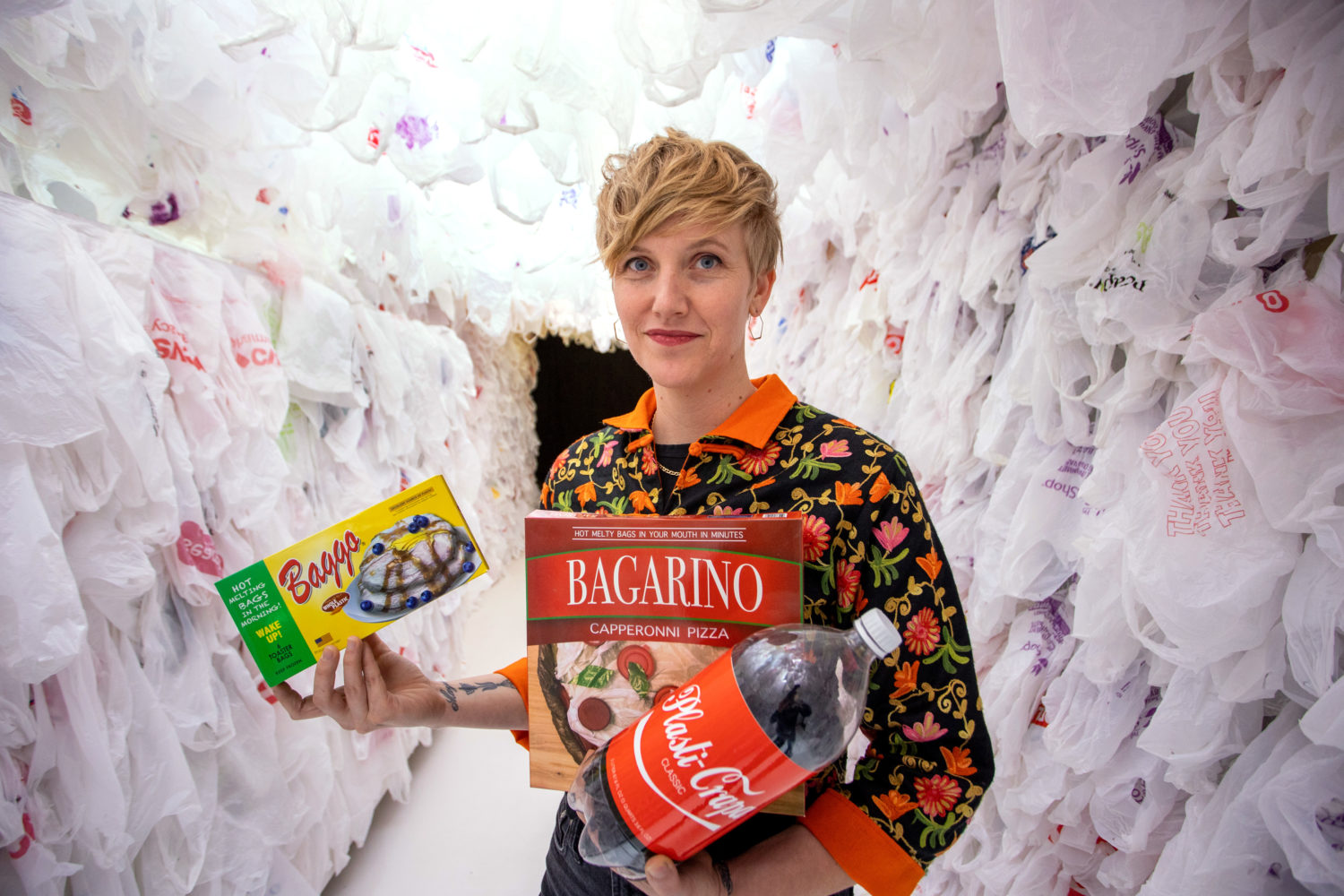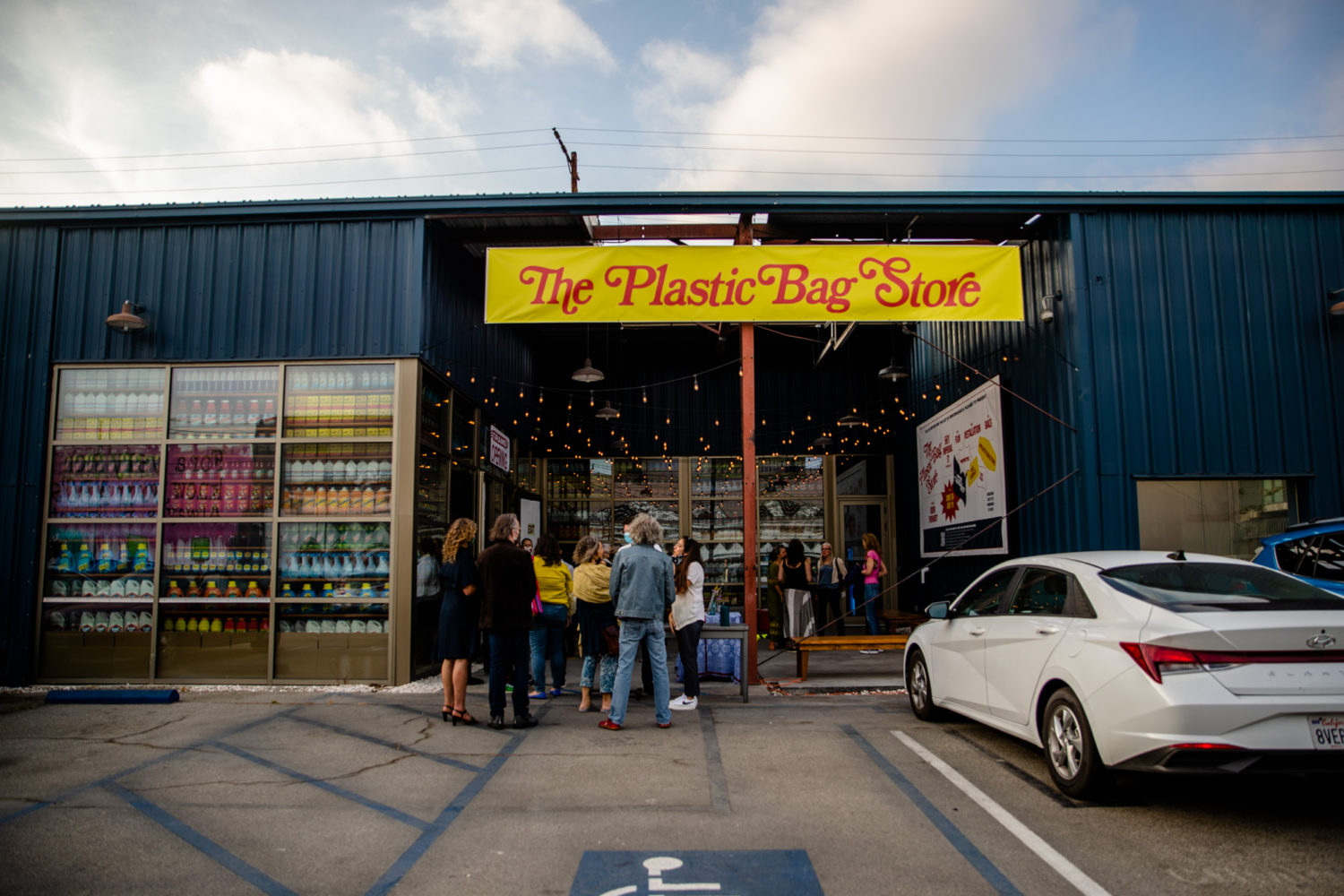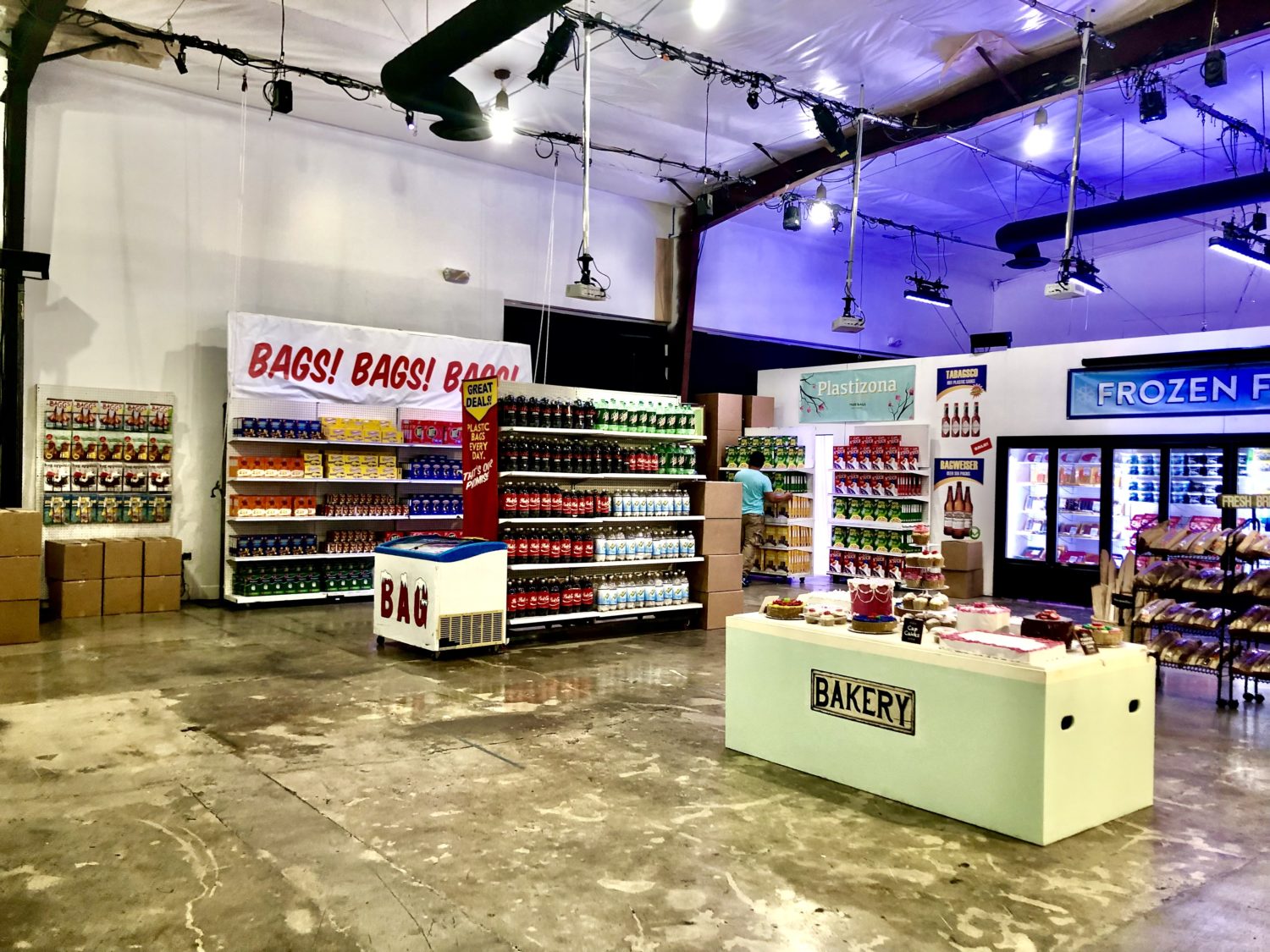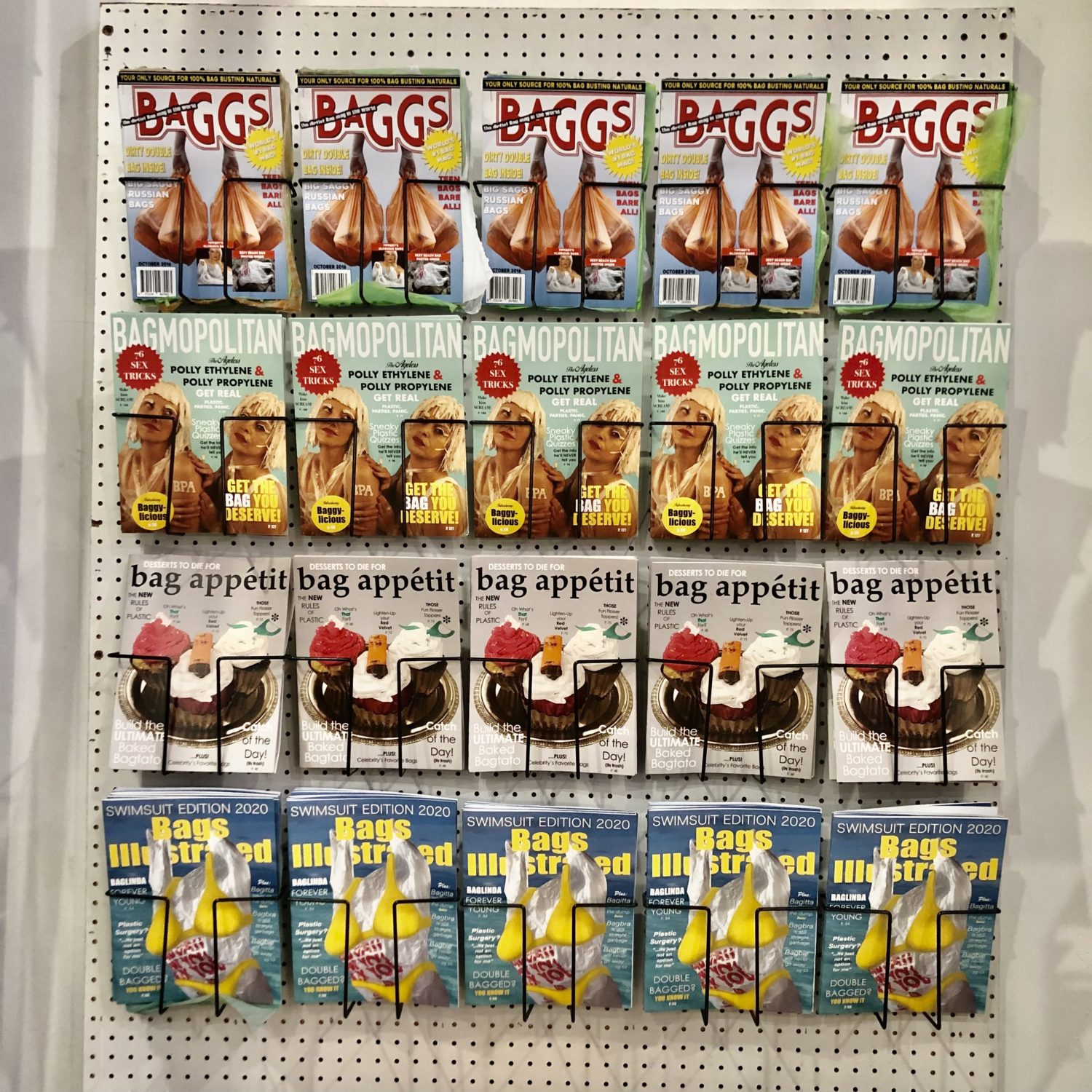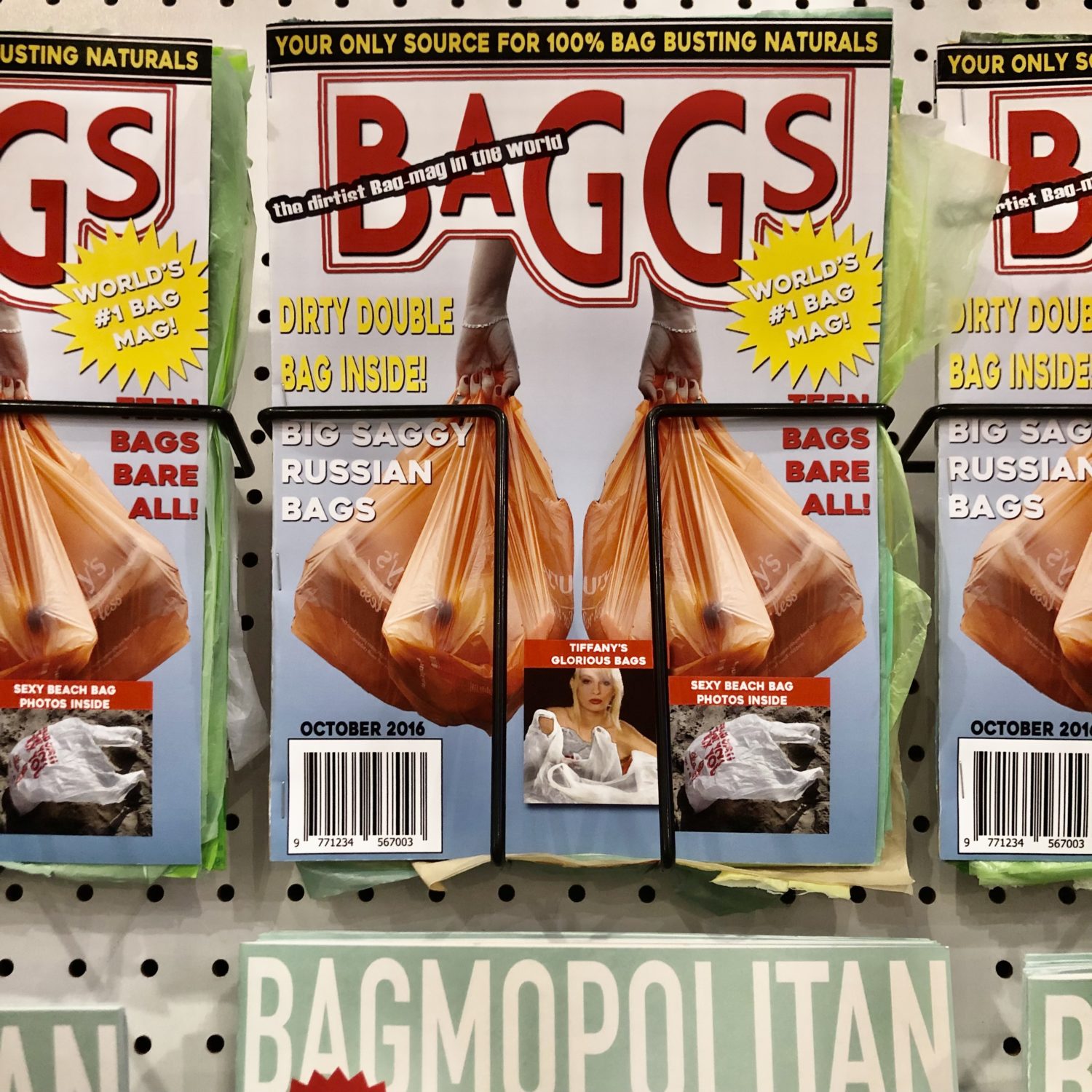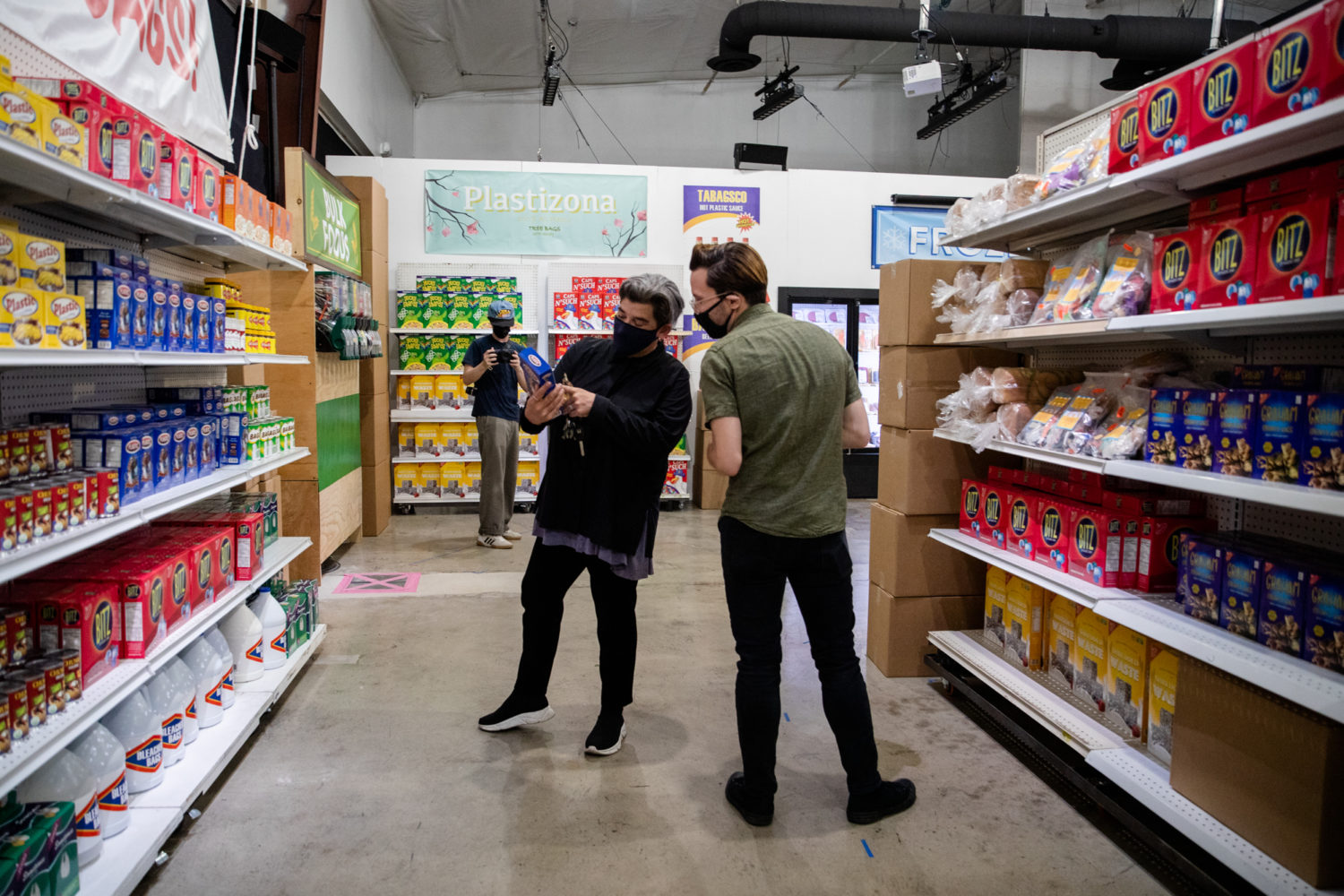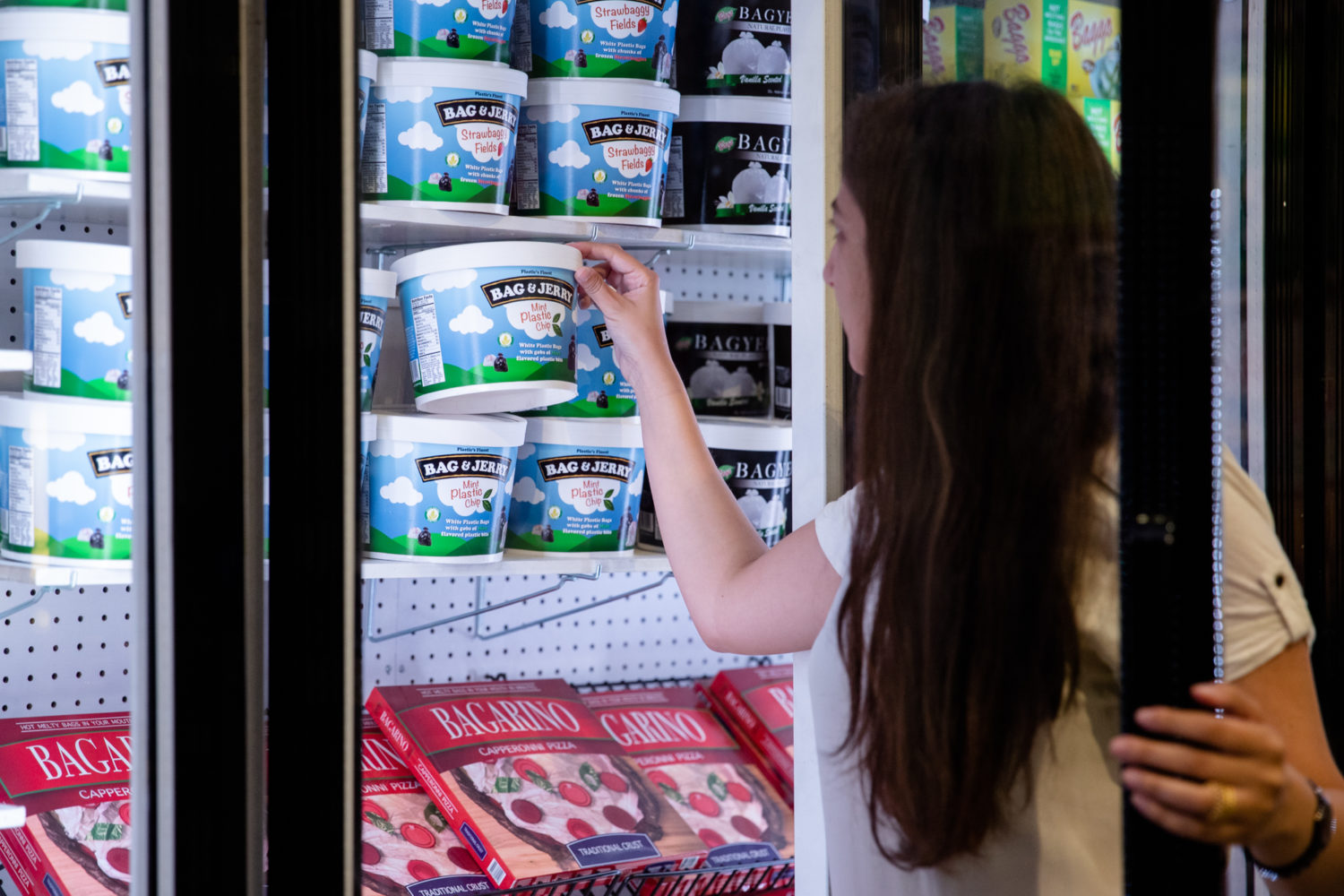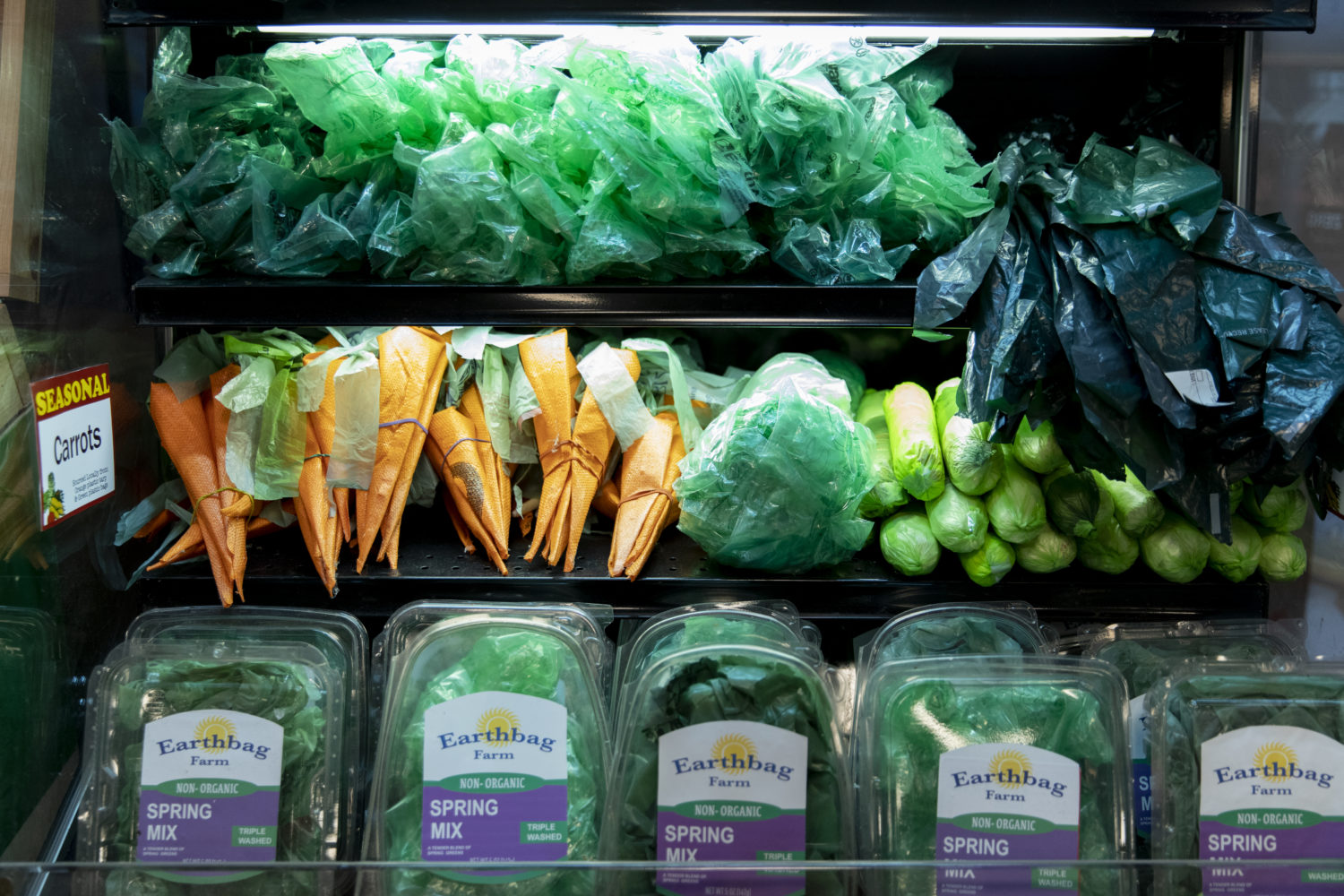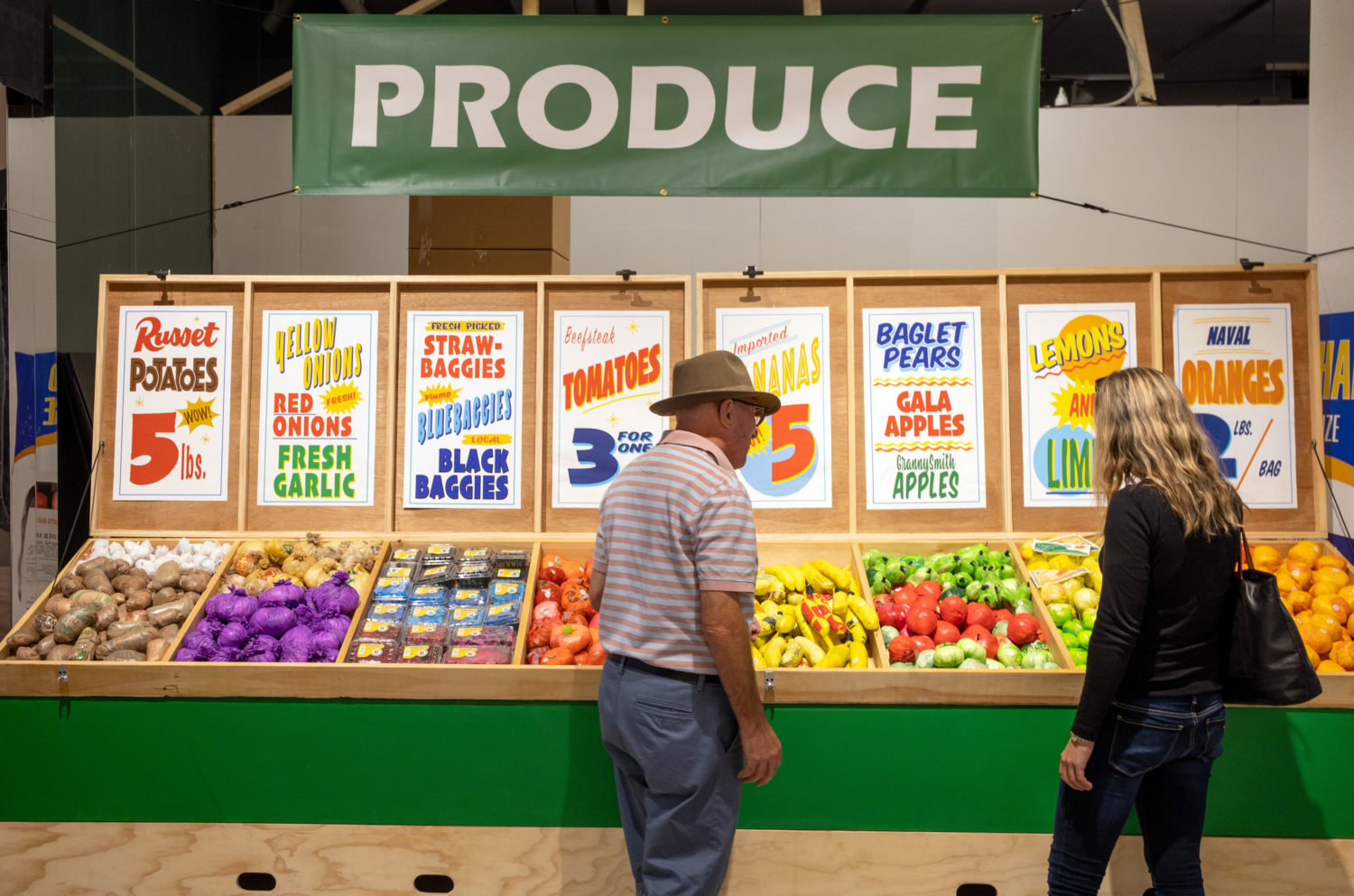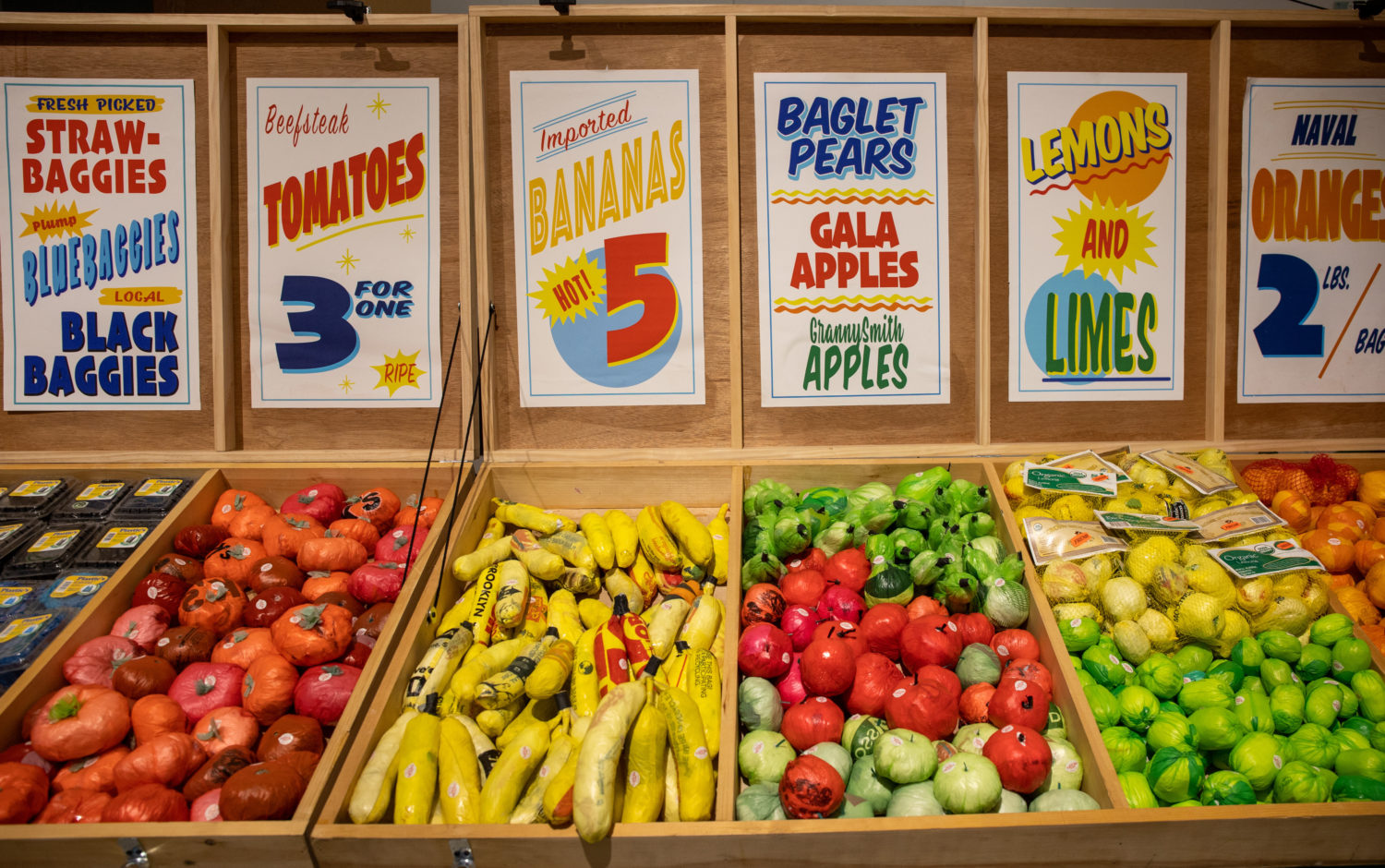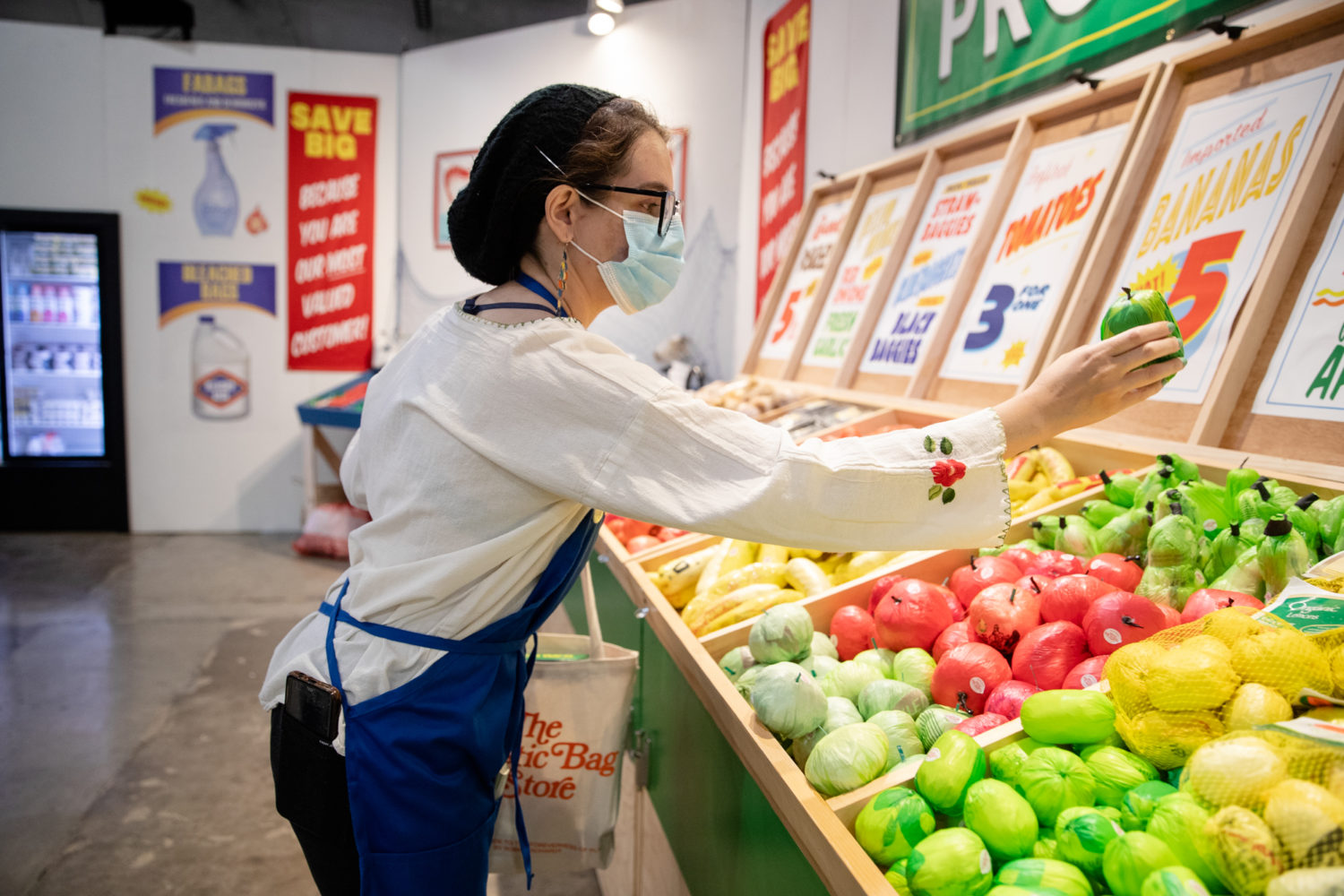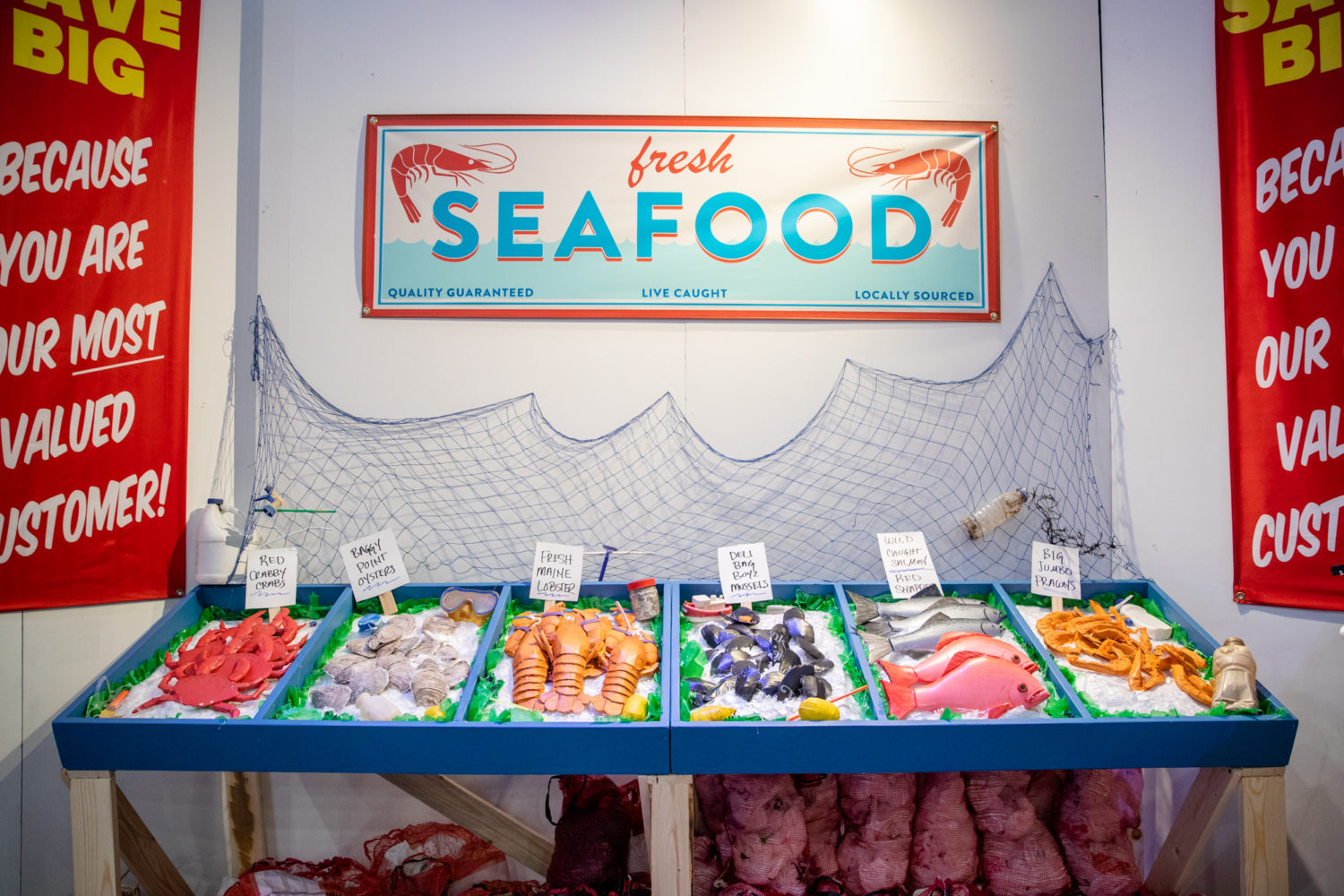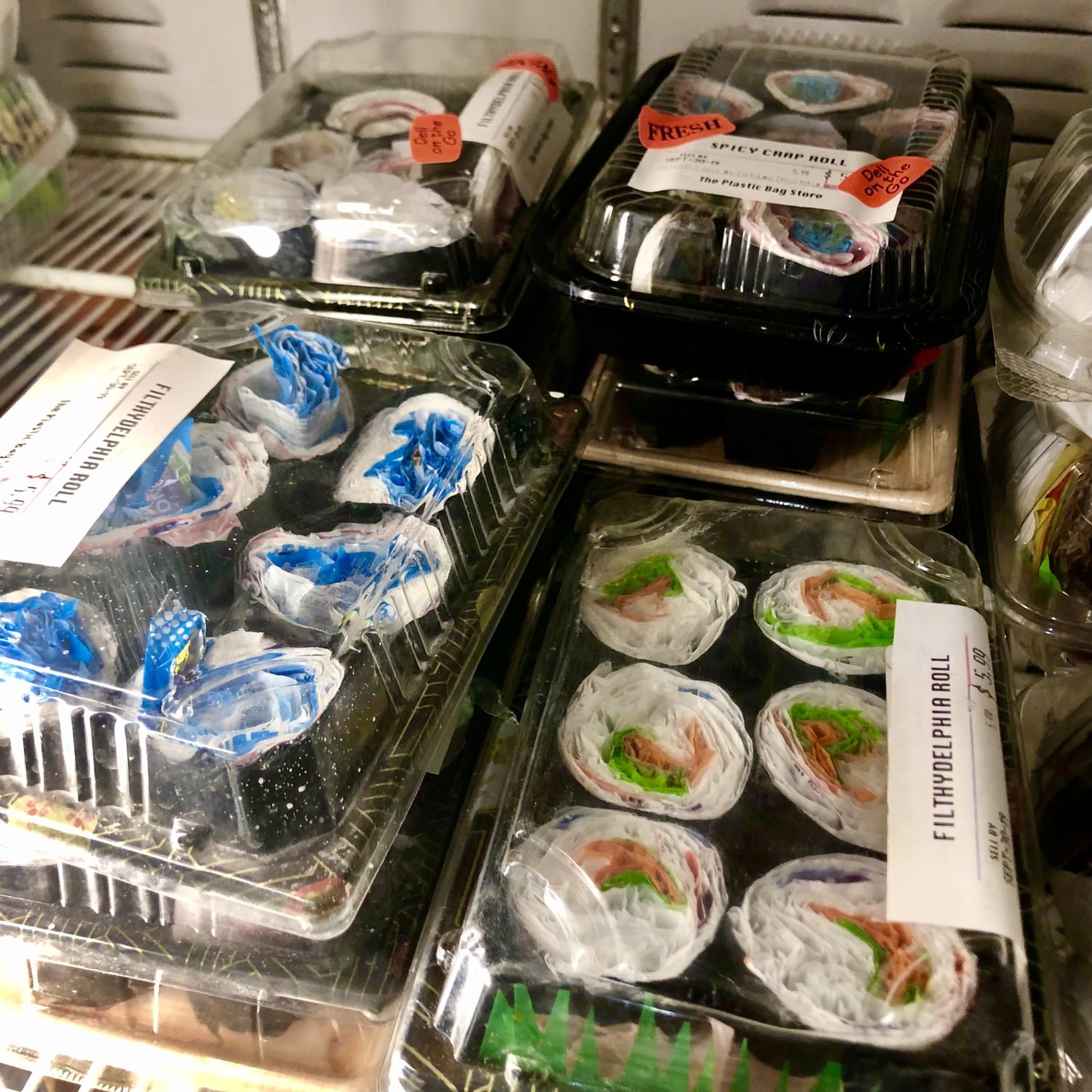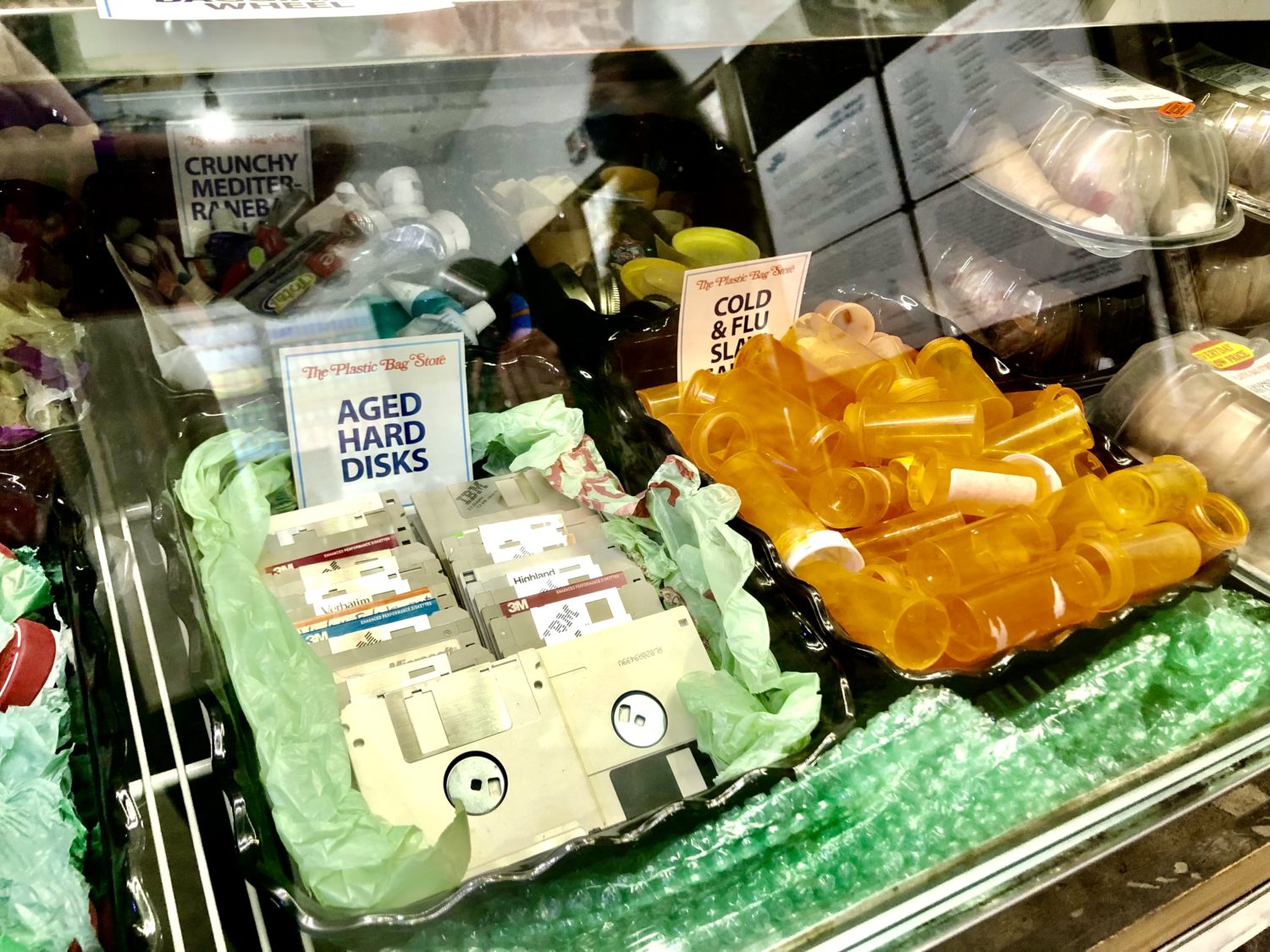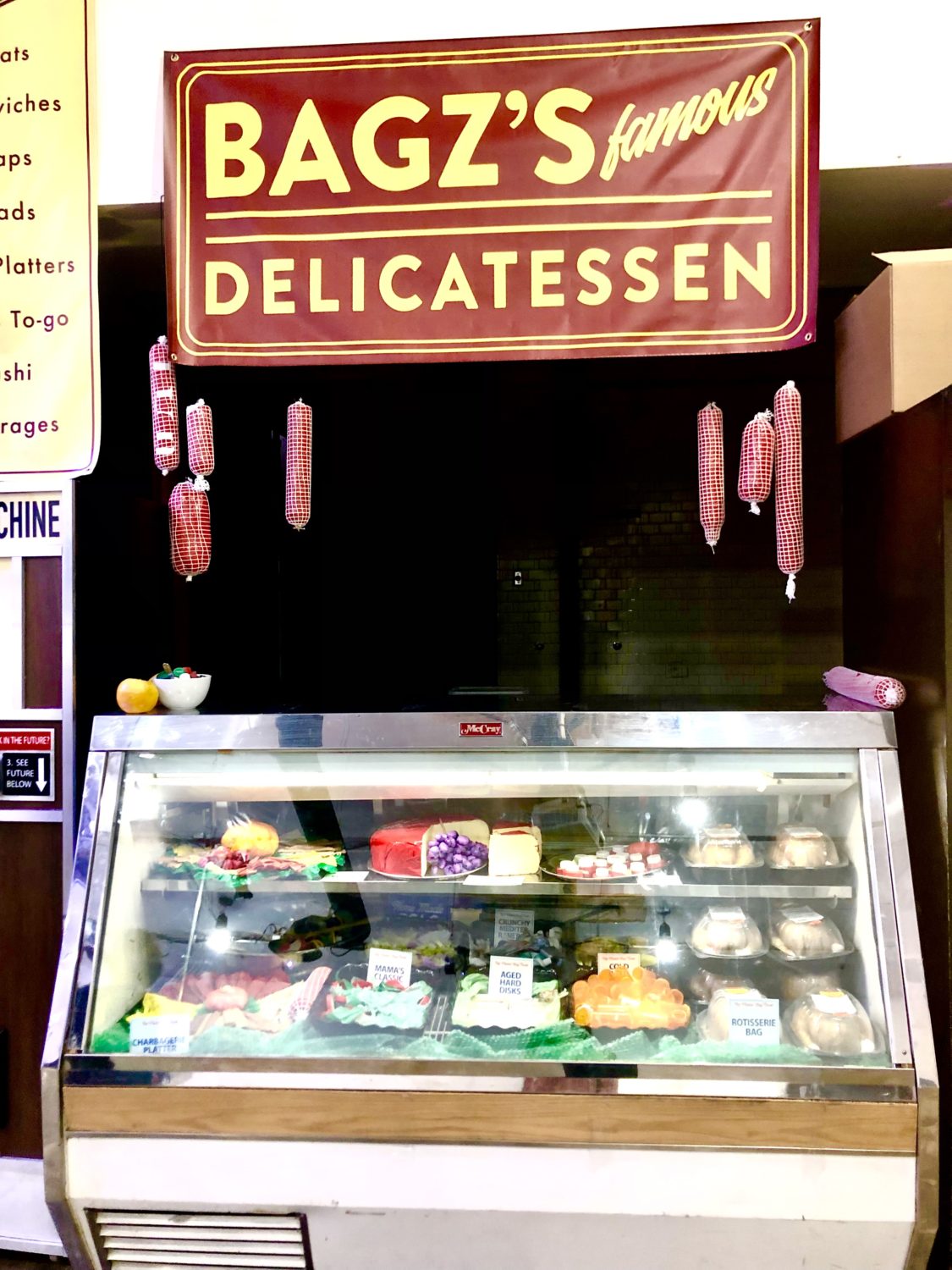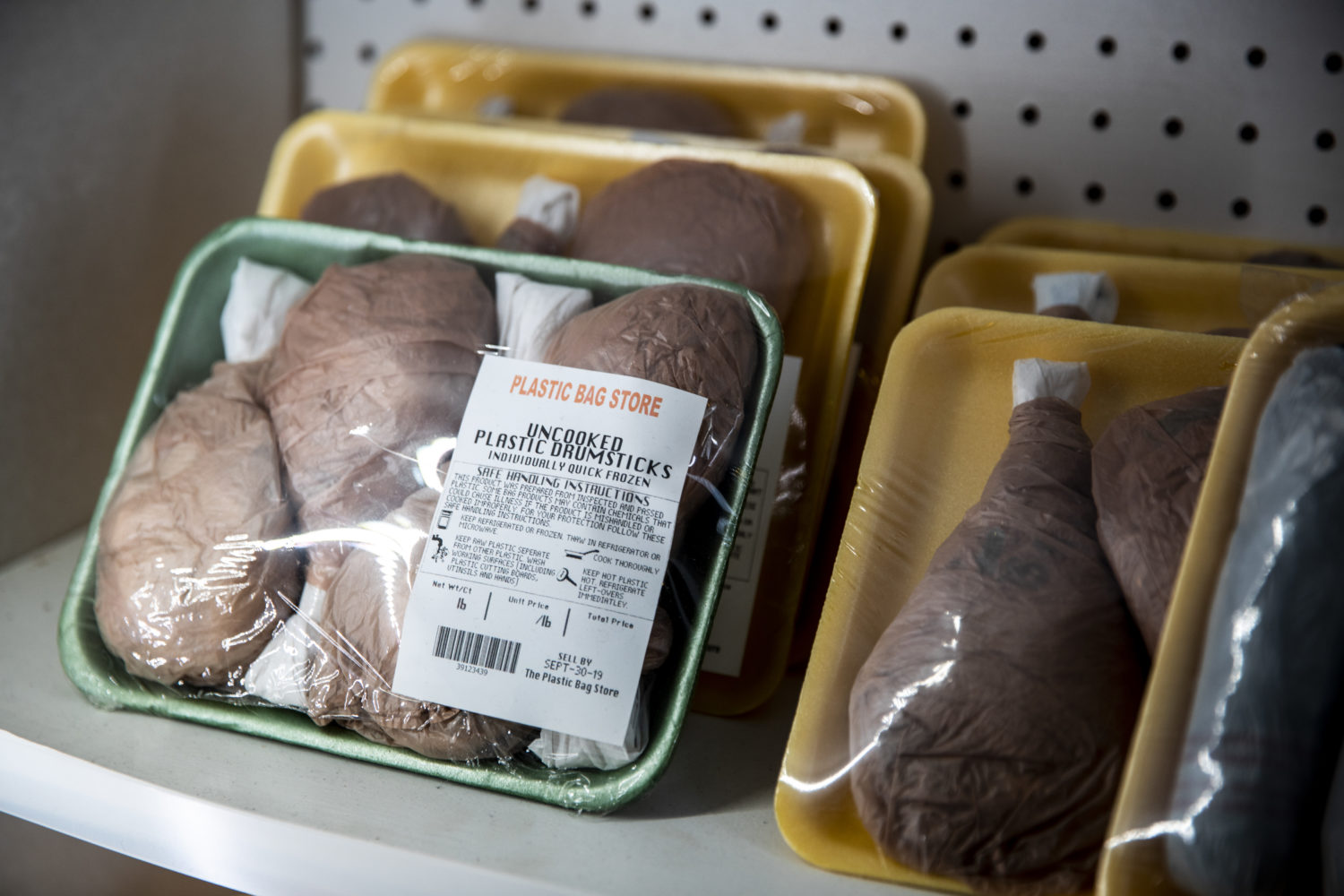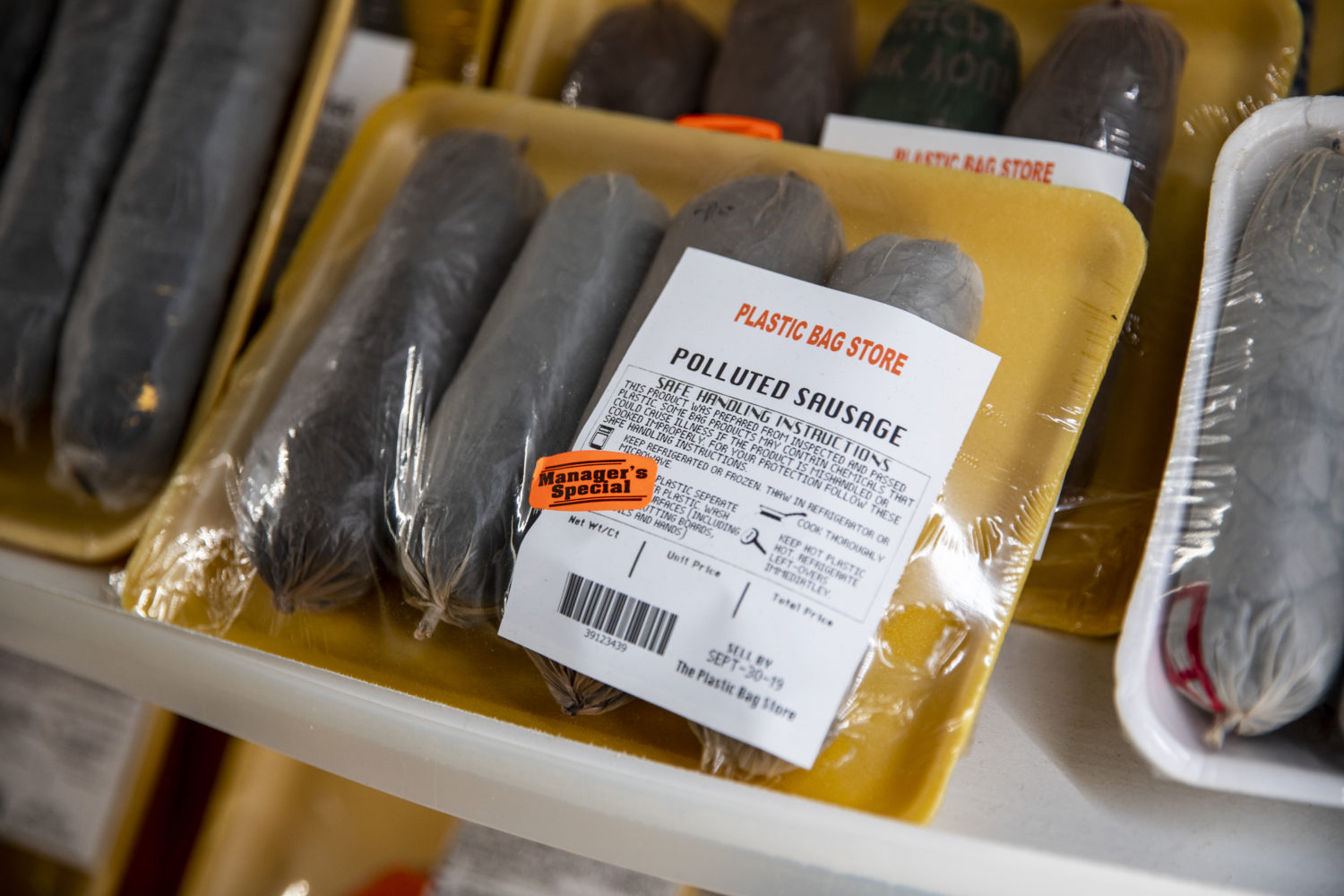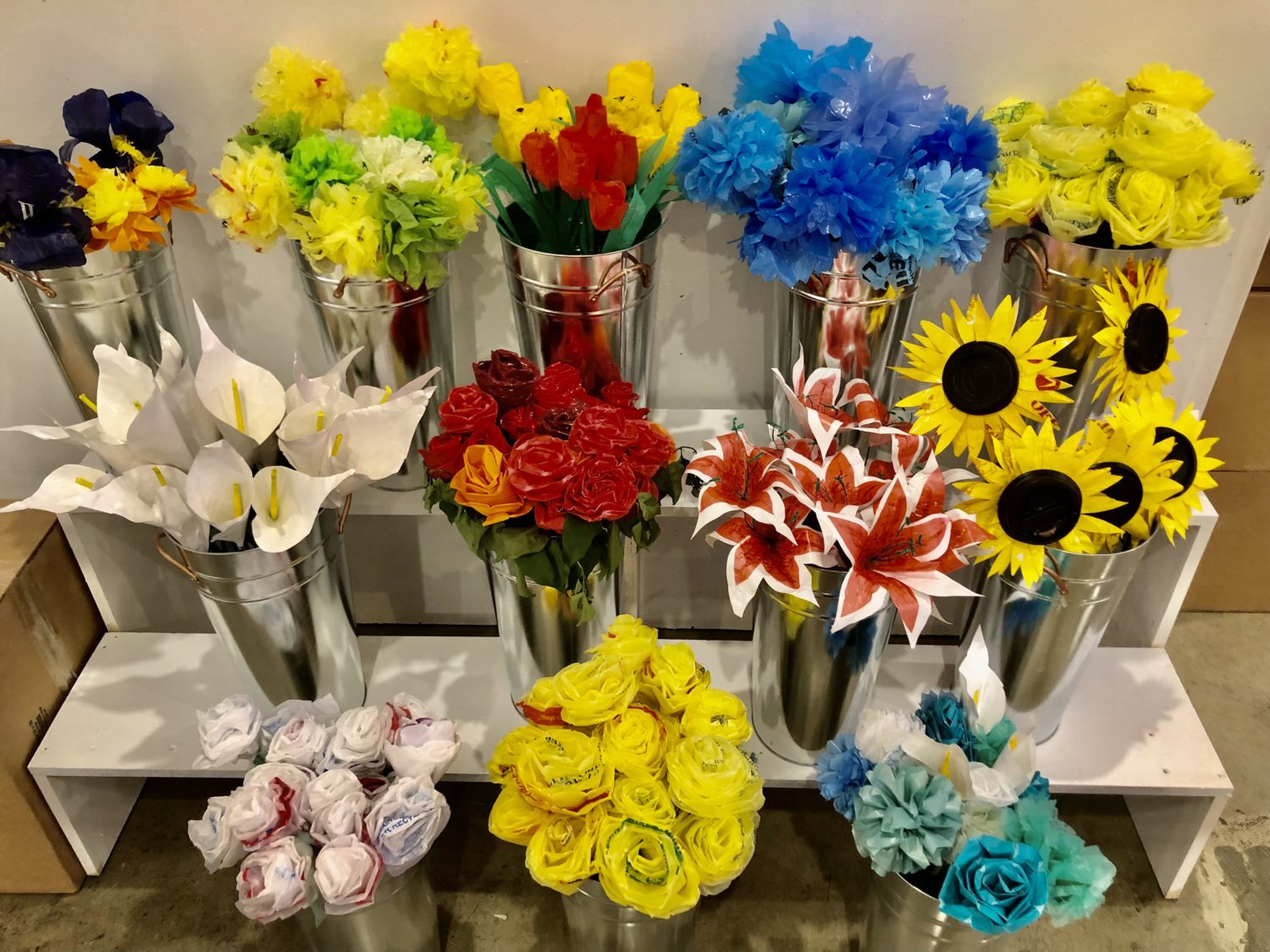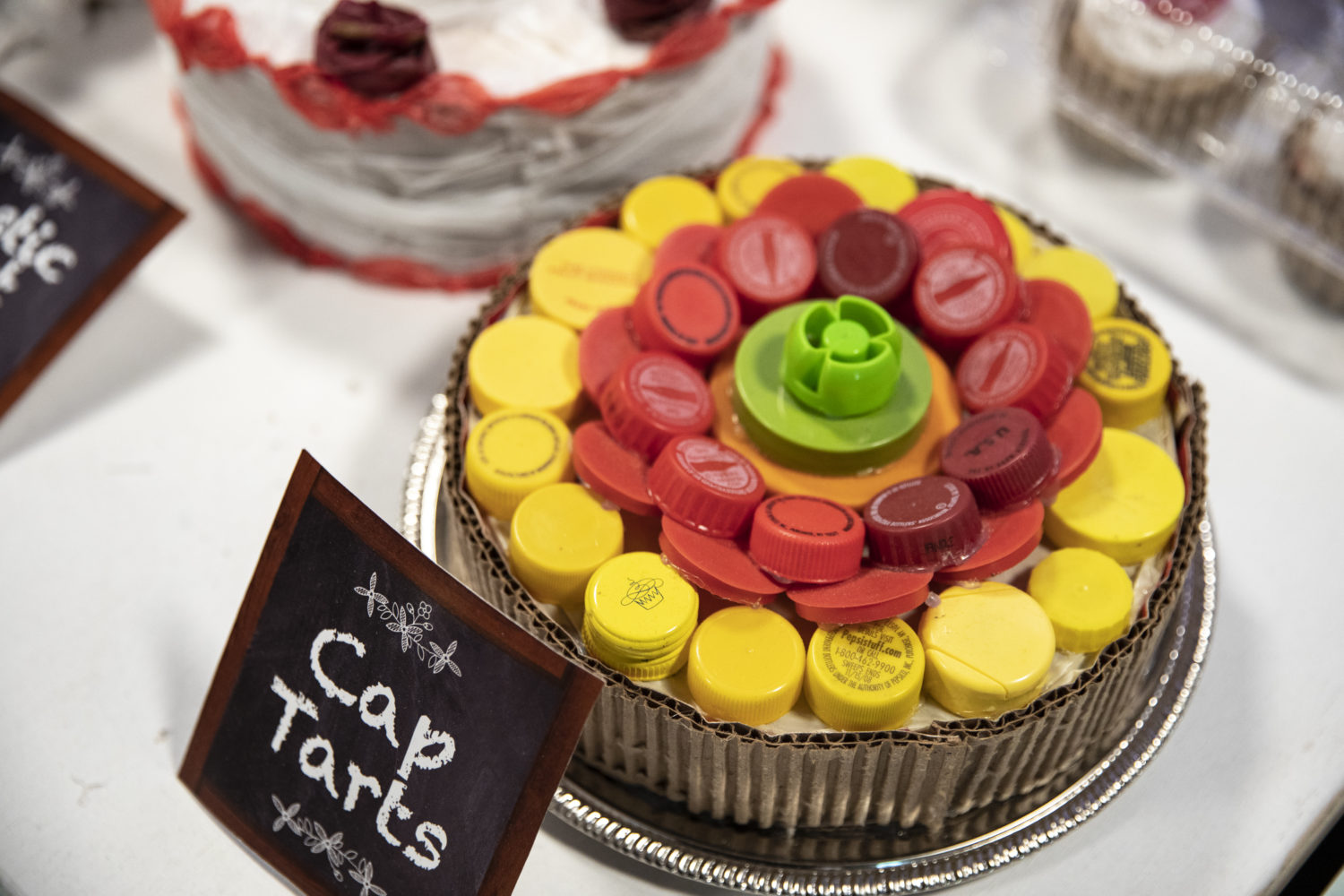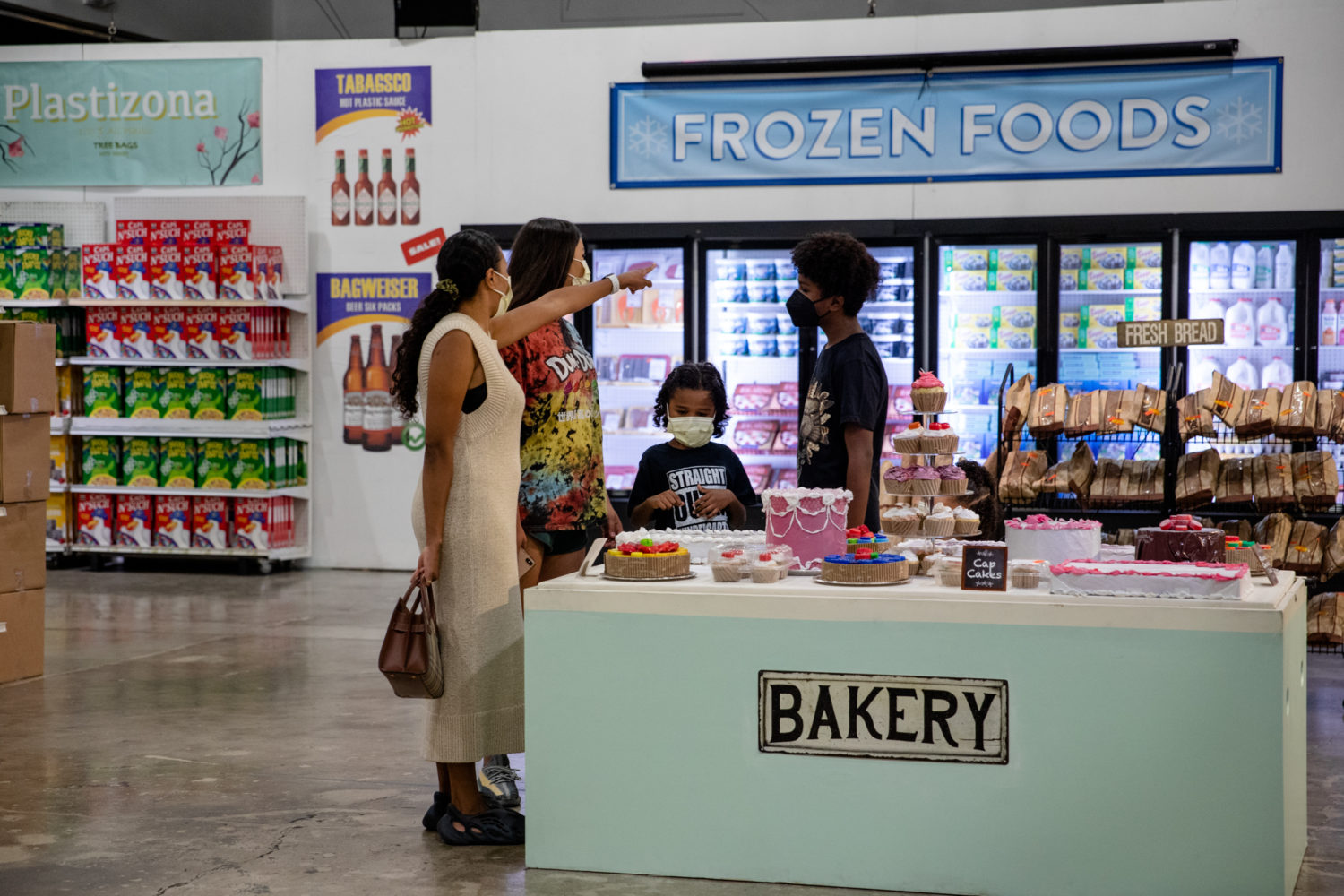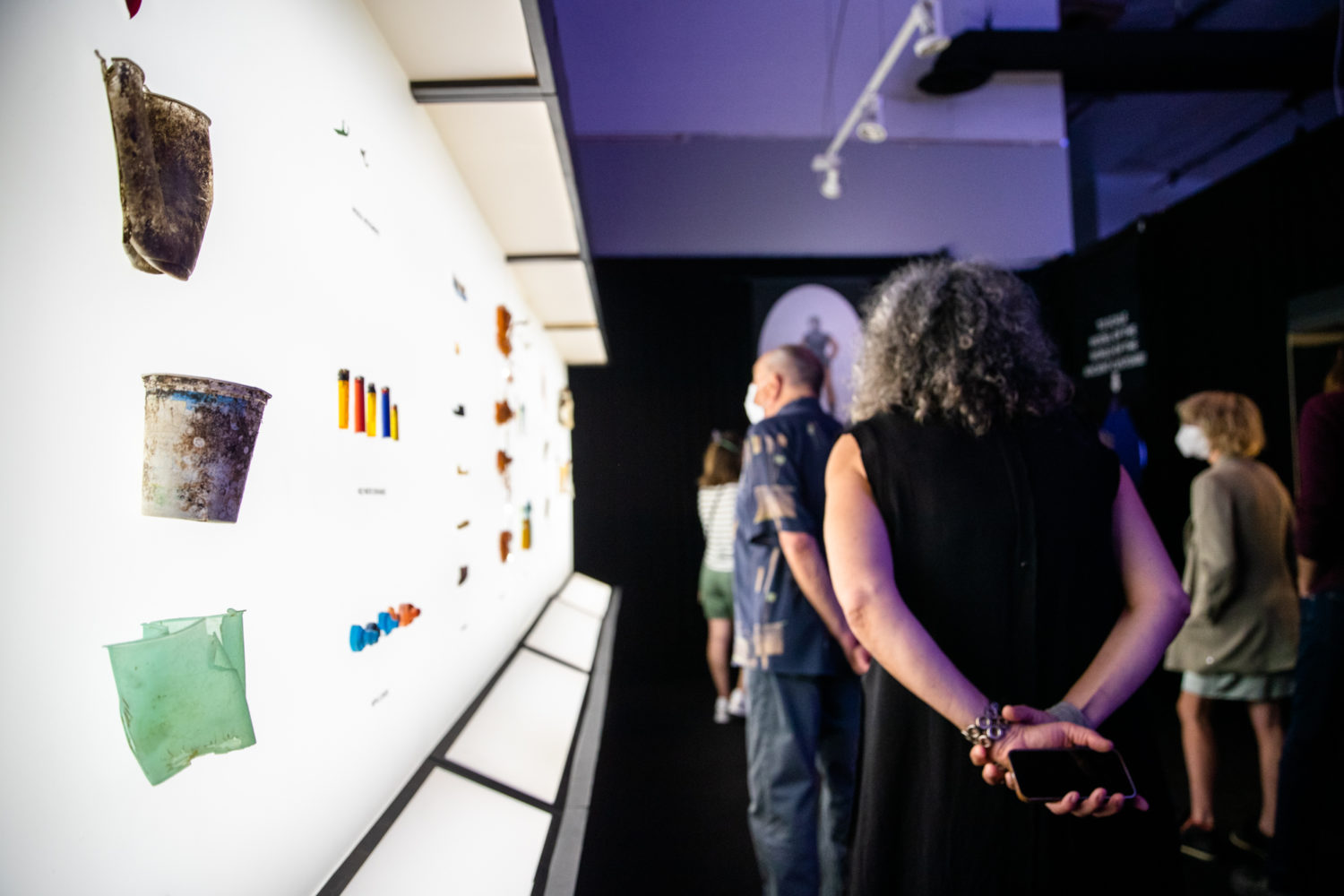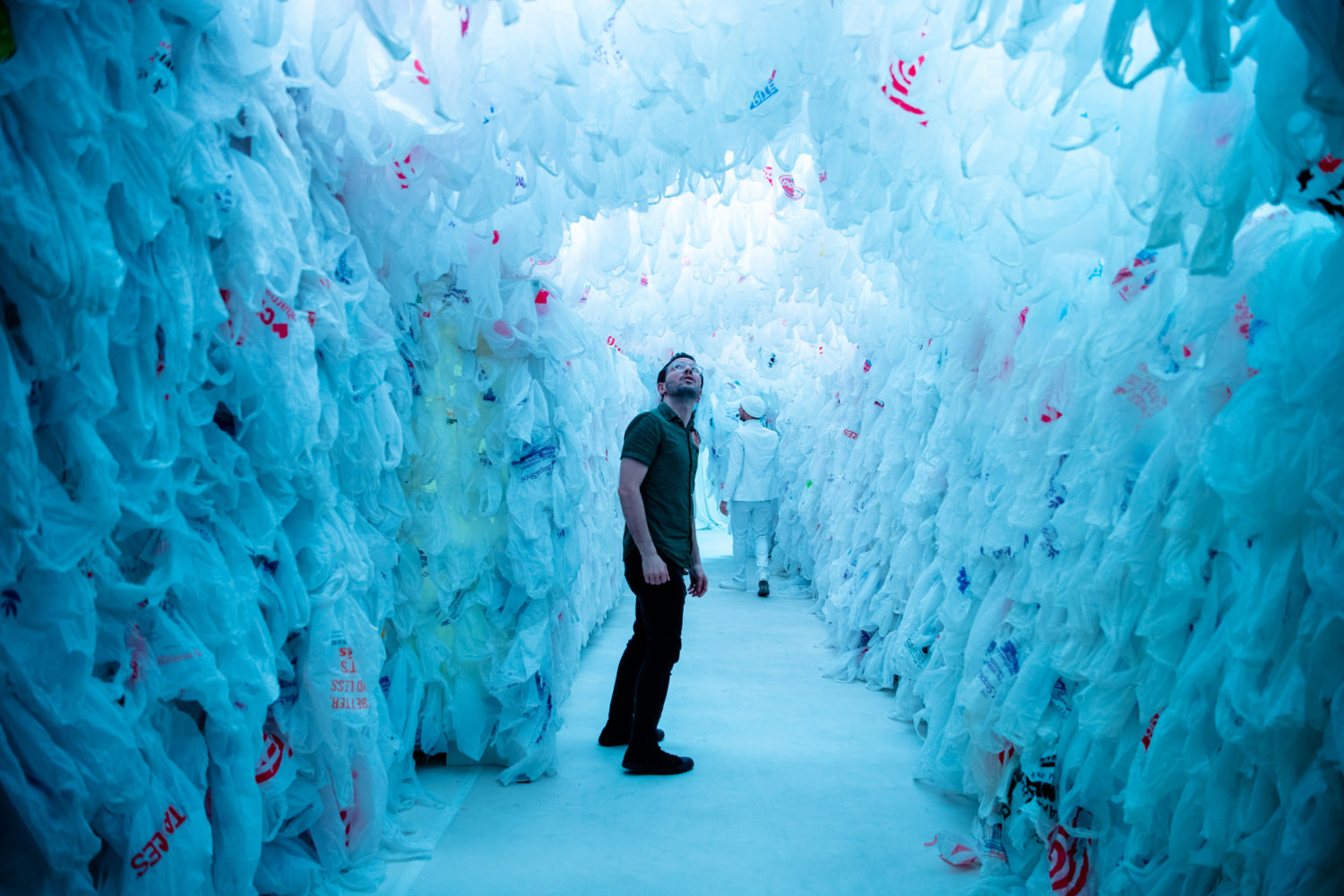The Plastic Bag Store is an interdisciplinary and immersive art installation of sculpture, film, puppetry, performance and education constructed entirely of recycled packaging waste. In its perfect mimicry of the supermarket aesthetic, from crackers and cereal to soda and ice cream, dairy and deli cases, flowers and cigarettes and sugary treats, it is fascinating and witty, dark at times and dazzlingly brilliant, achieving physical illusion and graphic design with a spot-on eye for detail and hearty comedic zing. It’s also a conceptually impactful cautionary tale about our cavalier attitude toward the scourge of disposable plastics.
When artist and director Robin Frohardt made plans to open her traveling installation in Los Angeles this summer, no one predicted the literal ocean would be on fire in a petroleum-extracting catastrophe highlighting the urgency of climate change action – but they might have done, if they were paying attention. And that is, in the end, the goal of the installation – to inspire people to pay more attention, to their own individual behavior and to both local and geopolitical environmental policy that is currently failing us in the most dramatic fashion.
Frohardt believes, as many do, that humor, beauty and satire are powerful weapons in the fight against intransigence and apathy. With that in mind, the perfect recreation of Shredded Waste cereal, Bitz (of plastic crap) Crackers, Bag & Jerry’s ice cream, Bagarino pizza, Plasti-Crap cola, bag appetit magazine, Bagbra hummus, Bagz’s famous delicatessen, and so on is first and foremost a charming work of public art. And it is full of surprises – like the hidden tunnel leading to a reverential “museum” which imagines what archeologists of the future will make of all our buried plastic garbage.
The storefront is further activated by an immersive film-based performance work, featuring puppetry, handmade sets and audience interactivity that make even more explicit the absurdity in the millennial halflife of every piece of plastic in the world. The site – and satellite projects at UCLA’s Center for Art and Performance cultural partners from the ICA LA to the Skirball Center – also hosts more policy-forward programs and conversations aimed at properly transferring the awareness-raising into action-taking. For example, Plastic Pollution Awareness Night is Wednesday, July 7; and throughout the run CAP will have conversations featuring innovative environmental activists More Art, Less Plastic and Unpacking The Plastic Crisis streaming on their website.
Screenings of the film component – BAG – are also happening at the ICA LA and Art at the Rendon (both just a few blocks from the main Plastic Bag Store site). An all-cardboard short film created by Frohardt, BAG follows the journey of a plastic bag from the present day to the far-off future. BAG screens in a seven-minute loop at The Rendon and will be accompanied by a display of the intricate handmade cardboard scenic creations from the short film. Up the block at ICA LA, BAG screens along with an 11-minute short, A Guided Tour of Robin Frohardt’s The Plastic Bag Store – a behind-the-scenes look at the project and in conversation with Frohardt and Jean Cooney, the Director of Times Square Arts who first presented the project last Spring.
As it happens, when the team first opened the work in New York’s Times Square in March of 2020, no one predicted the pandemic would lead to a mandated increase in disposable protective gear and single-use plastic as public safety measures either, but here we are. The original project was originally timed to coincide with the city’s ban on plastic bags going into effect – a progressive policy immediately suspended in the name of pandemic measures.
Likely the world’s most eccentric recycling program, in some ways, Frohardt’s creative experience tracks with that of many assemblage artists who begin collecting and borderline hoarding their chosen found and salvaged materials, forging in her circle of friends a sort of plastic-rescue street team who helped with the gathering. At the same time, with every laugh and spark of poetry, each object points an accusing finger back at the audience, whose daily behaviors exacerbate the situation.
Walking through the installation, discoveries and realizations abound. Not only as to the impact of personal and global actions and toxic habits of consumerism and capitalist greed, but more nuanced insights and ironies. For example, in the context of a landfill, the fact that plastic never really degrades is pure harm, while in the context of art objects, that’s what’s called archival and it’s a “good” thing that this now-valuable work made from what was garbage will endure. Rescued by artistic intervention from polluting the natural world, these individual pieces of poison are themselves redeemed, and given a renewed sense of purpose – saving the world – that transcends their function.
Multiple live ticketed performances daily & installation viewing by timed reservation, through July 11 at 661 Imperial St., downtown; $10-35; off-site film screenings at the Rendon and ICA LA are free; cap.ucla.edu/plastic_bag_store.


